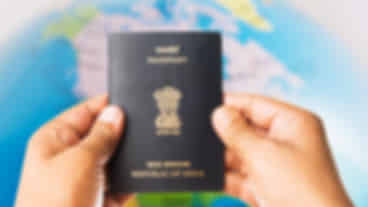Tourist Tax: Pay to enter these Countries in 2025

As the global pandemic still continues, the travel sector is reviving itself in this era of restrictions and lockdowns. Many countries that have relied upon tourism in the past are particularly struggling. And as a result, some have implemented an upcoming “tourist tax” in 2024.
Before also tourist taxes were in existence and if you have travelled abroad, you have likely paid one before, you may have just not noticed it. You might have paid it as the taxes you pay at your hotel or sometimes worked into airline tickets. Here, we have made it a bit easier for you and done research about the countries you have to pay to enter.
Thailand – Introduces a Tourist Fee (2025)
Thailand has introduced a tourist fee of 300 Baht (€8) from April onwards as it will help finance the further developments in the country in the tourism sector.
Venice – It will Introduce a Tourist Fee (2025)
Venice may soon start charging tourists who visit summer onwards in 2024. The proposed charge may vary between €3 and €10 because it will be based on the destination’s low or high tourist season.
Also read – 6 Best Free Things to Do in Venice – The City of Canals
European Union ( EU ) implements a tourist tax (2025)
Non-European Union citizens, including Americans, Australians and other travellers from outside the Schengen zone, will need to fill out a €7 application to get in, by the end of the year 2024. People who are under 18 or above 70 will not have to pay the fees. These are those countries where you are already paying a tourist fee to get in from before. They have implemented a tourist tax for various reasons such as – to prevent over-tourism, sustainability tax on each visitor, maintaining tourism facilities, and protecting natural resources.

tourist tax
Check out the countries where you have to pay tourist tax
Austria
In Austria, you have to pay an overnight accommodation tax. It varies and depends on the province you are staying in. You have to pay an extra 3.02 per cent on the hotel bill per person, in Vienna or Salzburg.
Belgium
In Belgium, you have to pay an accommodation tax. It varies and depends on the province you are staying in. Antwerp and Bruges charge a rate per room, in Brussels it varies depending on the hotel’s size and rating and in general it is around €7.50.
Bhutan
Bhutan’s tax is sky high in comparison to other countries as the minimum daily fee for most foreigners. The fee is: $250 (€228) per person per day during the high season and is slightly less in the low tourist season. The fees cover almost everything including transportation in the country, accommodation, a guide, food, and entry fees.
Bulgaria
In Bulgaria, you have to pay an accommodation tax. It varies and depends on the province you are staying in and is basically up to around €1.50.
Also read – Beaches of Bulgaria: Top 10 places for a Chilled out Vacation
Caribbean Islands
Most Caribbean islands have tourist taxes on hotel costs or a departure fee and the fees range from €13 to €45.
Croatia
Croatia raised their tourist tax in 2019 which applies during peak season in the summer. The basic pay is around 10 kuna (€1.33) per person per night

croatia
Czech Republic
You only need to pay a tourist fee in Prague which is around (under €1) and pay per person, per night, up to 60 nights.
France
“Taxe de séjour” is added to your hotel bill or it can vary from city to city. The fees range from €0.20 to around €4 per person, per night.
France Tour Package Starting @ ₹58,956
Eiffel Tower. Bordeaux Wine Tasting. Provence Lavender Fields. Nice Beaches. Magical Mont Saint Michel
View France Packages
Germany
Germany charges “culture tax” (a kulturförderabgabe), and also a “bed tax” (a bettensteuer), in some cities including Frankfurt, Hamburg, and Berlin which is around 5 per cent of your hotel bill.
Also read – 10 Haunted Places In Germany
Greece
The tourist tax in Greece is based on the number of rooms and it can be €4 per room. The Greek Ministry of Tourism introduced it to help the country’s tourism sector.
Hungary
Tourist fees in Hungary only apply in Budapest and in which visitors have to pay an extra 4 per cent every night based on the price of their hotel room.

hungary
Indonesia
Tourist taxes in Indonesia only apply in Bali and pay €9. The fee is used to help to preserve the environment and Balinese culture.
Italy
Tourist taxes in Italy depend on the city you are in. Venice may also introduce its own tax.
Also read – Looking to Move to Italy? Pros and Cons
Japan
In Japan, it comes in the form of a departure tax in which visitors have to pay 1,000 yen (around €8) as they leave the country.
Malaysia
Malaysia’s tourist tax is applied per night you stay and is not more than €4 a night.

Tourist Tax
New Zealand
Many tourists in New Zealand must pay an International Visitor Conservation and Tourism Levy (IVL) when they arrive from which Australians are exempt. The fess charges around $35 New Zealand dollars which is equal around €21.
The Netherlands
The Netherlands has a land tourist tax and a water tourist tax and in Amsterdam, this amounts to 7 per cent of the cost of a hotel room.
Also read – Top Cities Of The Netherlands That Travellers Must Visit On A Vacation
Portugal
Portugal’s low tourist tax is paid per night per person for the first seven days of your stay. It is only applicable to guests who are 13 and over which is around €2.
Rome
Rome’s fee ranges from €3 to €7 per night depending on the type of room.
Slovenia
The tourist tax in Slovenia varies based on location and hotel rating and is a bit higher in larger cities and resort towns which is around €3.

Tourist Tax
Spain
In Ibiza and Majorca, you have to pay a tourist tax whereas, on Spain’s Balearic Islands (Mallorca, Menorca, Ibiza, Formentera), Sustainable Tourist Tax applies to holiday accommodation. The tax rate may vary depending on the tourist season.
Spain Tour Package Starting @ ₹74,660
Switzerland
The tourist tax in Switzerland applies to stays under 40 days which varies depending on the location and cost according to per night and per person which is around €2.20.
USA
A hotel tax or lodging tax also called an occupancy tax is charged for travellers renting accommodation. The fees apply at hotels, motels and inns and the highest rate is reportedly paid in Houston which is a 17 per cent tax on your hotel bill.
Also read – USA travel guidelines from India
Hope we have made it much easier for you to understand how this whole tourist tax system works! Now, don’t wait and take a trip from Pickyourtrail at amazing prices. Here, you can also customise your itinerary and have tailor-made trips just as you want. See you soon!
Recommended articles for you
Discover Packages


Need help in planning?
Talk to our Travel Experts






























